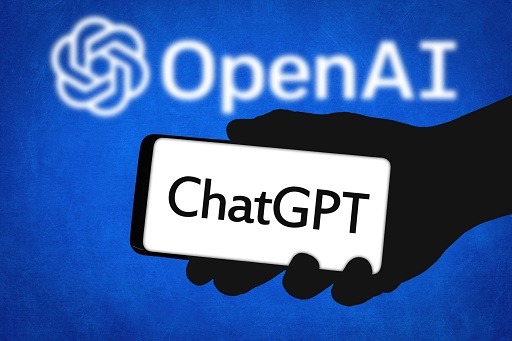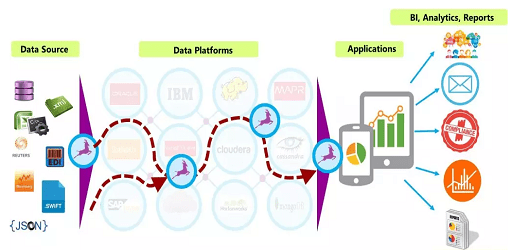ChatGPT has emerged as a significant concern for security and privacy due to the inadvertent sharing of our confidential information. Every conversation we have with ChatGPT is recorded, along with any personal details we disclose. However, unless you’ve carefully scrutinized OpenAI’s privacy policy, terms of service, and FAQ page, you may not be aware of this.
The risk of data leaks is already high when individuals unknowingly disclose their information, but with the widespread usage of ChatGPT by large corporations for information processing, this could potentially lead to a catastrophic data breach.
There are several reasons why one should exercise caution when it comes to sharing confidential information with ChatGPT. Firstly, ChatGPT logs every conversation it has, including any personal information shared. This information is then stored on OpenAI’s servers and potentially shared with other companies and AI trainers.

Secondly, there have been instances where employees of companies, such as Samsung, have accidentally leaked confidential information via ChatGPT. This highlights the ease with which private information can be compromised, and the risk it poses to individuals and companies.
Thirdly, there is the possibility that the code typed into the chat box by employees seeking to troubleshoot bugs may also be recorded on ChatGPT’s servers. This could lead to breaches that have a significant impact on companies and their unreleased products and programs, resulting in huge revenue losses.
Confidential Information Leaked by Samsung via ChatGPT
As per Gizmodo, Samsung employees accidentally divulged sensitive information through ChatGPT thrice within 20 days. This incident highlights how simple it is for corporations to compromise confidential data.
Given the ongoing scrutiny of ChatGPT’s privacy concerns, Samsung’s oversight in this regard is significant. Several countries have even prohibited the use of ChatGPT to safeguard their citizens until its privacy measures are enhanced. Therefore, one would expect companies to exercise greater caution regarding their staff’s utilization of the platform.
Fortunately, it appears that Samsung’s customers are not at risk, at least for the time being. The compromised data comprises solely of internal business operations, such as troubleshooting proprietary code and meeting notes, all of which were shared by employees. Nonetheless, it would have been equally effortless for the personnel to expose customers’ personal information, and it’s only a matter of time before another company encounters a similar situation.
If such an incident occurs, we can anticipate a significant rise in phishing scams and identity theft, posing a considerable threat to individuals’ security and privacy.
You can also read: How to use ChatGPT: the viral AI chatbot
There is an additional layer of risk to consider in such cases. In situations where employees utilize ChatGPT to identify bugs, similar to what occurred in the Samsung leak, the code entered into the chat interface will also be stored on OpenAI’s servers. This could potentially result in breaches that have a profound impact on a company’s ability to troubleshoot unreleased products and programs. There is a possibility that sensitive information such as unreleased business plans, future releases, and prototypes could be leaked, leading to significant revenue losses.
How Do ChatGPT Data Leaks Happen?
ChatGPT’s privacy policy explicitly states that it records conversations and shares the logs with other companies and its AI trainers. Therefore, when a person, such as a Samsung employee, inputs confidential information into the chat window, it is recorded and stored on ChatGPT’s servers.
The concerning aspect of this situation is that it is improbable that the employees intentionally leaked the information. However, as most data breaches are the result of human error, it underscores the significance of companies educating their staff about the privacy risks associated with utilizing tools such as AI.
For instance, if an individual were to paste a comprehensive contact list into the chat and request the AI to extract customers’ phone numbers from the data, ChatGPT would then have those names and phone numbers stored in its records. This implies that your private information is vulnerable to companies with whom you haven’t shared it, and they may not have adequate measures in place to safeguard it and ensure your safety.
You can also read: How to Fix a Network Error in ChatGPT
Although there are some measures you can take to safeguard yourself following a data breach, it is the responsibility of businesses to prevent such leaks from occurring in the first place.
Don’t share your secrets with the ChatGPT
While ChatGPT is useful for various tasks, handling sensitive information is not one of them. It is crucial to exercise caution and refrain from entering any personal details, such as your name, address, email, and phone number, into the chat interface. It is effortless to make this mistake, so it is recommended to double-check your inputs to ensure that no confidential information has inadvertently been submitted.
The Samsung data leak serves as a warning that the risk of a ChatGPT-related data breach is very real. Unfortunately, as AI becomes an integral part of most business operations, we may see more of these types of errors, potentially with more significant consequences.
Would you like to read more about “Should I Trust ChatGPT with Confidential Information-related articles”? If so, we invite you to take a look at our other tech topics before you leave!
![]()













